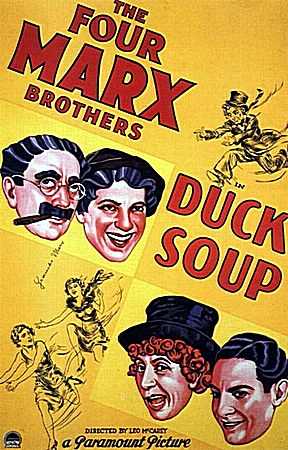Friday December 11, 2009
Lancelot Links
- The New York Times gives us their top 10 books of the year. I haven't read any of them but I'm still disappointed with the fiction offerings. Or maybe I'm merely disappointed with the Times' synopeses: "concise yet finely grained..."; "narrated by a Wisconsin college student who hungers for wordly experience..."; "the theme is feminism..." It all feels dry and small. Only the Lethem and Walls' books open things up.
- Meanwhile, the best bookstore in Seattle is moving.
- I'm not a big fan of the "forgot" school of commentary ("In your list of top 10 superhero movies, you forgot "Daredevil, dude..."), but NPR gives us an article on the top villains of the decade, complete with a poll of five possible picks... and doesn't mention Anton Chigurh? Nice work, friendo.
- Two years ago Variety's Peter DeBruge's watched an Oscar montage of best foreign films and was, in his phrase, "floored," and became determined to watch them all. He did so this year and reports his findings here. He talks about the excitement of the early years: "Bicycle Thief," "Rashomon," "The Nights of Cabiria," "The Virgin Spring"...
And then a curious thing began to happen. Questionable winners started to sneak in. Mushy French melodrama "Sundays and Cybele," a Stateside hit in 1962, won (submitted over Francois Truffaut's far superior "Jules et Jim"). De Sica's overripe "Yesterday, Today and Tomorrow" (1964) trumped the existential masterpiece "Woman in the Dunes," while massive French phenom "A Man and a Woman" (1966) bested "The Battle of Algiers" and so on.
The category was fast devolving into a popularity contest, with the B.O. sensations beating what many thought was their more deserving competition. Great films carried the category into the next decade, including De Sica's heartbreaking foiled-by-WWII romance"The Garden of the Finzi Continis" (1971), Truffaut's playful meta-movie "Day for Night" (1973) and Kurosawa's pensive non-samurai epic "Dersu Uzala" (1975). But corruption allegedly set in as well, which might explain how "Black and White in Color" (1976) beat "Seven Beauties" and "Cousin, Cousine" when those two films were nominated for five other Oscars between them.
My two most satisfying discoveries — 1978's "Get Out Your Handkerchiefs," a nutty menage a trois from French provocateur Bertrand Blier, and 1985's "The Official Story," a wrenching look at the children of political dissidents put up for adoption during Argentina's Dirty War — fall during this questionable period.
- Via Hollywood Elsewhere, James Cameron talks to a French journalist about the making of "Avatar." The questions are tough and the answers are smart. I don't know if "Avatar" will work, or will sell, but I like the way Cameron's selling it. He includes a kind of callback to Wiliam Goldman's famous dictum that nobody in Hollywood knows anything: "I think people in Hollywood don't really know what's commercial," Cameron says. "What's commercial is what people want to see. It's that simple. Sometimes they want to slow down and experience something. It isn't always dack-dack-dack, boom-boom-boom, rocketing along. This is what Hollywood has convinced themselves people want to see." ... Even better are Cameron's comments about how the best movies alter our perceptions. "It's not just about literally seeing [the Na'Vi] but about perceiving differently —perceiving through the eyes of the other person. That's what cinema's all about to me. You come in one door and you come out through another door. And that's a door of perception." The comment reminded me of the days when moviegoers would do this literally: enter one way, exit another (through the exit doors). We don't do that so much anymore. We tend to leave the same way we entered. Both literally and, sadly, metaphorically. (BONUS FOR FRENCH STUDENTS: The interview is subtitled in French so you can practice as you listen.)
- In baseball, the rich get richer.
 Finally, I'm a long-standing Marx Bros. fan, so A.O. Scott doesn't say much that either surprises or thrills me in his video critique of, or homage to, "Duck Soup." But watch it anyway—particularly if you haven't seen them in action. Halfway through, we get a scene where Chico and Harpo, spies for Sylvania, report to Ambassador Trentino (Louis Calhern), who simply asks for the records of Rufus T. Firefly (Groucho) of Freedonia. One simple question and the gags come rapid-fire:
Finally, I'm a long-standing Marx Bros. fan, so A.O. Scott doesn't say much that either surprises or thrills me in his video critique of, or homage to, "Duck Soup." But watch it anyway—particularly if you haven't seen them in action. Halfway through, we get a scene where Chico and Harpo, spies for Sylvania, report to Ambassador Trentino (Louis Calhern), who simply asks for the records of Rufus T. Firefly (Groucho) of Freedonia. One simple question and the gags come rapid-fire:
- Harpo produces a record LP from his trenchcoat.
- Trentino throws it in the air in exasperation and Harpo takes a gun from his trenchcoat and shoots it like a skeet.
- Chico rings a bell, says "And the boy gets a cee-gar," and hands Harpo one of Trentino's cigars.
- Chico closes the cigar lid on Trentino's hand and Trentino rubs his hand in pain.
- Harpo pretends to take Trentino's hand-rubbing for excitement and rubs his hands in excitement, too.
- Five gags in 10 seconds. Brilliant.
Baseball's Active Leaders, 2023
What Trump Said When About COVID
Recent Reviews
Everything Everywhere All at Once (2022)
Black Panther: Wakanda Forever (2022)
Doctor Strange in the Multiverse of Madness (2022)
Spider-Man: No Way Home (2021)
The Cagneys
A Midsummer Night's Dream (1935)
Something to Sing About (1937)
Angels with Dirty Faces (1938)
A Lion Is In the Streets (1953)
Man of a Thousand Faces (1957)
Never Steal Anything Small (1959)
Shake Hands With the Devil (1959)







